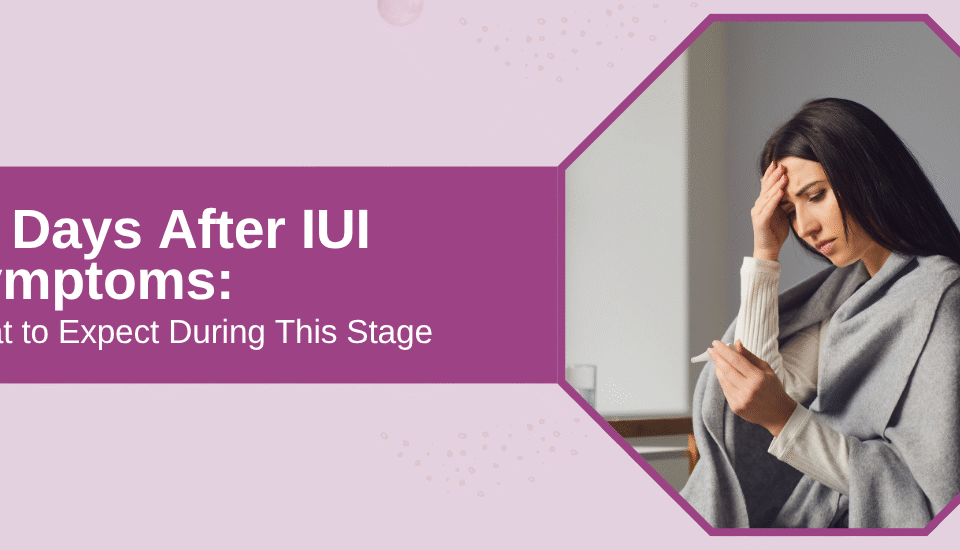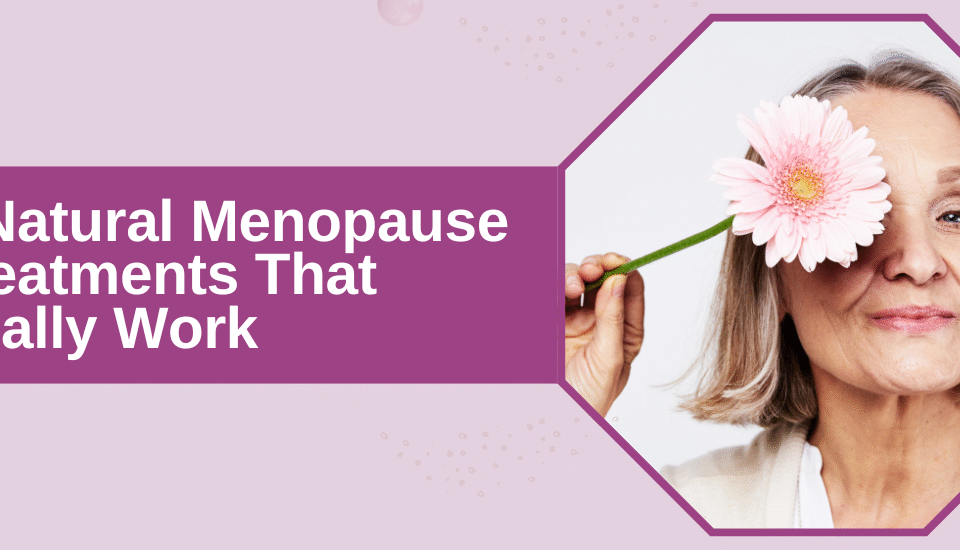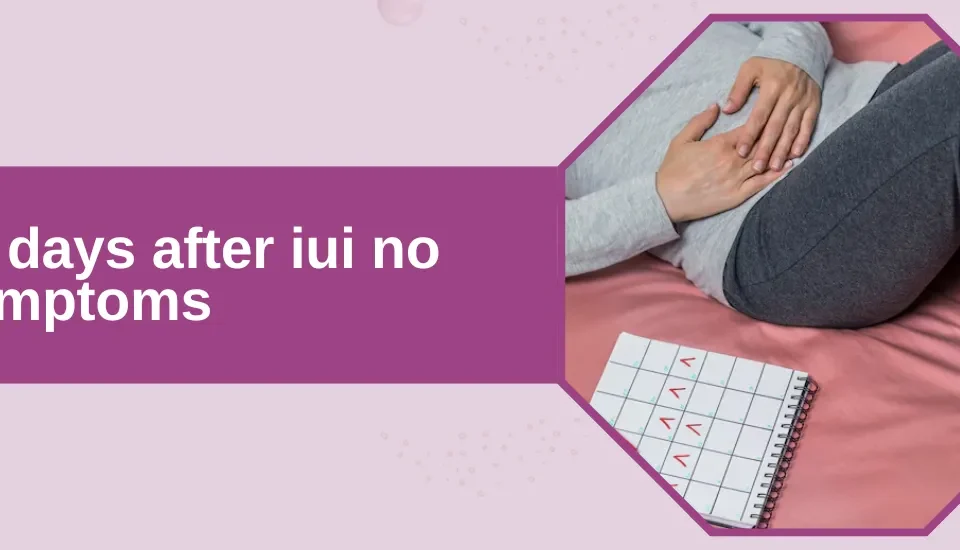- Have any questions?
- +91-98717 17305
- babiesandus12@gmail.com
PCOS After Abortion

IUI with 3 follicles
March 22, 2024
Unlock the possibilities: Pregnant at 45 with own eggs
April 29, 2024Overview
PCOS, or Polycystic Ovary Syndrome, happens when your ovaries don’t work as they should. It can affect your periods, cause acne, and make it hard to get pregnant. After an abortion, PCOS symptoms might change. Stress from the abortion can make symptoms stronger or weaker.
It’s a myth that abortion can cause PCOS, as PCOS is a pre-existing hormonal condition not triggered by abortion. However, an abortion can impact existing PCOS symptoms due to hormonal fluctuations or stress. In light of this, Babies & Us Fertility IVF & ICSI Center in Mumbai offers affordable and effective fertility treatments, delivered with expert care and compassion.
Wondering about PCOS after abortion? Let’s discuss your concerns. Connect for personalised guidance.
Can you get PCOS after abortion?
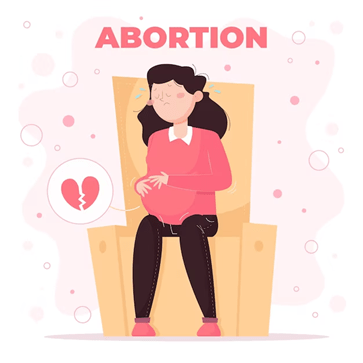
No, you don’t get PCOS as a result of abortion. PCOS is an insulin resistant, inflammatory, and hormonal disorder that can go up to the ovaries and affect the ovulation patterns of a woman. It is a condition associated with genetics, lifestyle issues, and maybe environmental triggers, but it does not result from a procedure such as abortion.
If you have PCOS and choose to have an abortion, you may notice changes in your symptoms afterward. These changes could be due to hormonal shifts and stress from PCOS, rather than the abortion itself causing PCOS. If you had PCOS before the abortion, it’s important to keep track of your health and talk to healthcare experts about any changes you experience afterward.
Abortion doesn’t cause PCOS, but if you already have it, the procedure might impact your symptoms due to hormonal changes or stress.
What are the chances?
Abortion does not lead to the development of Polycystic Ovary Syndrome (PCOS). PCOS is something some women have due to their genes, how their body utilises sugar and their hormone levels. This is not the case with such medical interventions as abortions.
Women with PCOS may experience changes in symptoms after an abortion due to hormonal readjustments. However, it’s important to note that the pregnancy itself doesn’t cause PCOS. If you have concerns about your symptoms, it’s best to consult with a healthcare provider.
Now, if you start to have symptoms different from before like change in your menstrual periods or other ones, consult your doctor. They can provide insight into the cause of the crisis and also let you know what to do next.
Understanding the causes of PCOS following an abortion is crucial for addressing potential health concerns and providing appropriate care.
Curious about the causes of PCOS after abortion? Let’s explore together. Connect for more information.
Causes of PCOS after abortion

- Abortion doesn’t cause PCOS: PCOS could be related to one of these examples- factors of hormone levels, how your body utilises insulin, and how genes are inherited. It is not an abortion itself, but the circumstances leading to it.
- Changes after abortion: After an abortion, some women may experience changes such as irregular menstrual cycles and breast pain. These are often due to the hormonal changes from the abortion, not the sudden onset of PCOS.
- Temporary symptoms: Basically, any alteration in the period or mood swings are just temporary, as the body readjusts the level of hormones.
- Existing PCOS: In case you’re diagnosed with PCOS, it’s more probable for you to develop additional symptoms due to hormonal upset and stress induced by an abortion. Nevertheless, the abortion doesn’t lower the chances or raise the chances of the disease either.
- Talk to a doctor: Do not hesitate to contact your doctor if you are concerned about any changes in your body following an abortion, especially if you have PCOS. This issue needs to be discussed with a specialist.
They can help you figure out what is causing the problem and how you can feel better. These two examples show the different ways mental health providers assist individuals in becoming more mentally aware and articulate their emotions.
After an abortion, if you have PCOS, you might notice some changes in your symptoms, like more irregular periods, acne flare-ups, or shifts in weight due to hormonal changes or stress.
Symptoms of PCOS after abortion
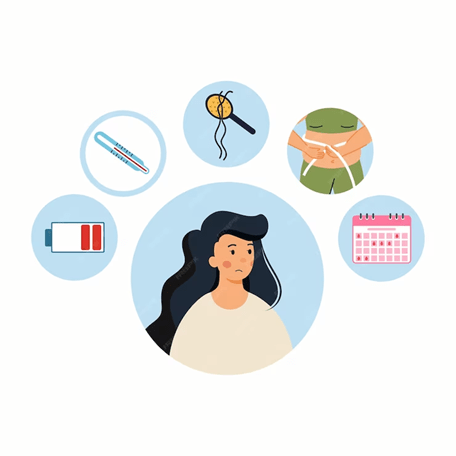
After an abortion, if you already have PCOS, you might notice some changes because of the stress and the shift in hormones.
Here are some things you might feel:
- Period Changes: Your periods might get more unpredictable. They could skip, come more often, or the bleeding could be different than before.
- Skin and Hair Changes: You might see more acne, or hair might grow in places you don’t want it to, or you might lose hair from your head.
- Weight Fluctuations: It could get harder to manage your weight. This is a common PCOS issue.
- Feeling Uncomfortable in Your Belly: Sometimes, PCOS causes cysts on your ovaries, and you might feel some discomfort there.
- Trouble Getting Pregnant: PCOS can make it hard to have a baby because it affects your ovulation. This won’t change just because you had an abortion.
- Feeling Down or Worried: Both PCOS and going through an abortion can make you feel more stressed, sad, or anxious.
Remember, these symptoms are more about PCOS and not really because of the abortion. If you’re not feeling right or if things seem to be getting worse, it’s a good idea to talk to a doctor. They can help you figure out what’s going on and what to do to feel better.
Diagnosing PCOS usually involves a mix of checking your symptoms, hormone tests, and sometimes an ultrasound to look at your ovaries.
Diagnosis
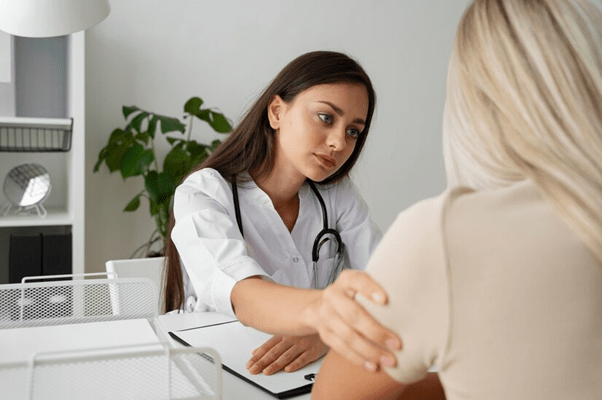
To check if you have PCOS (Polycystic Ovary Syndrome), doctors usually:
- Ask questions about your periods, weight changes, hair growth, and if getting pregnant is hard for you.
- Examine you for signs like extra hair, acne, or dark skin patches.
- Do blood tests to look at your hormones and check for sugar or cholesterol issues.
- Use an ultrasound to see if there are cysts on your ovaries.
You might have PCOS if you:
- Don’t have regular periods or don’t ovulate.
- Have high levels of male hormones (shown by blood tests or symptoms like extra hair).
- Have cysts on your ovaries seen in an ultrasound.
After an abortion, someone with PCOS might see their symptoms shift, potentially leading to complications like worsened hormonal imbalances or increased stress impacting their overall health.
Wondering about complications of PCOS after abortion? Let’s discuss potential concerns. Connect for personalized advice.
Complications of PCOS after abortion

If you have PCOS and have had an abortion, here are a few things to keep in mind:
- Feeling Down: You might feel sad or anxious after an abortion, especially if you have PCOS, which can increase these feelings.
- Period Changes: With PCOS, your periods can become even more irregular and painful, lasting longer than usual.
- Symptoms Might Get Stronger: PCOS symptoms like acne, weight gain, or excess hair may worsen temporarily due to hormonal changes after an abortion.
- Weight: Managing your weight can be challenging with PCOS, and stress from the abortion can affect your eating habits.
- Thinking About the Future: If you plan to have a baby later, know that PCOS can make it harder to get pregnant. However, having an abortion doesn’t affect your future fertility.
- Health Checks: It’s important to regularly monitor your reproductive health, especially for any abnormal changes like thickening of the endometrium.
After the abortion, stay in touch with your doctor, avoid smoking, and take care of your overall well-being.
Management

Managing PCOS is about taking care of your overall health and working with your doctor to find the best plan for you.
| Management Area | What You Can Do |
| Diet | Eat healthy foods like fruits, vegetables, and whole grains. Try to eat less sugar and junk food. |
| Exercise | Move more. Walking, swimming, or biking can help manage weight and improve symptoms. |
| Stress | Try relaxing activities like yoga, meditation, or deep breathing exercises. |
| Sleep | Aim for 7-9 hours of good sleep each night. |
| Medications | Your doctor might suggest medicines to help with periods, hair growth, or acne. |
| Regular Check-ups | Visit your doctor regularly to keep an eye on your health and adjust your treatment as needed. |
| Support | Talk to friends, family, or support groups. You’re not alone, and talking can help. |
Do you know? Keeping a healthy weight, eating a balanced diet, and staying active can really help manage PCOS symptoms and prevent them from getting worse.
Precautions and Prevention
Managing PCOS effectively involves taking certain precautions and adopting preventive measures to mitigate symptoms and reduce the risk of complications.
Here’s a simplified guide to help you:
Precautions:
- Monitor Your Health: Keep track of your menstrual cycle, weight, and symptoms. Regular monitoring can help identify any changes early.
- Medication Adherence: If you’re prescribed medication for PCOS, such as birth control pills or insulin sensitizers. Take them as directed by your healthcare provider.
- Be Active in Your Care: Communicate openly with your healthcare team about your symptoms and any changes in your condition.
Prevention:
- Healthy Eating: Focus on a balanced diet with plenty of fruits, vegetables, lean meats, and whole grains. Limit processed foods, sugary snacks, and high-fat items.
- Regular Physical Activity: Aim for at least 150 minutes of moderate-intensity exercise each week. Walking, swimming, cycling, and yoga are great options to improve overall well-being.
- Weight Management: Losing a small amount of weight can help regulate your menstrual cycle and hormone symptoms.
- Stress Management: Practise stress-relieving techniques like meditation, deep breathing, or mindfulness to cope better with stress.
- Sleep Well: Ensure you get enough quality sleep each night. Poor sleep can worsen PCOS symptoms.
- Avoid Smoking: Smoking can worsen PCOS symptoms and increase the risk of heart disease.
Following these steps and sticking to the recommended preventive actions can help manage the disease symptoms effectively and improve your overall quality of life.
Keep in mind that regular check-ups with your healthcare provider are irreplaceable when optimising your PCOS treatment plan to allow for adaptations as and each of them.
FAQs

1. Can abortion cause PCOS?
No, abortion doesn’t cause PCOS.
2. Will PCOS symptoms change after abortion?
Some women might notice temporary changes due to hormonal shifts.
3. Does PCOS affect fertility after abortion?
PCOS can challenge fertility, but abortion generally doesn’t impact long-term fertility.
4. How to manage PCOS post-abortion?
Eat healthily, exercise, manage stress, and follow any medical advice.
5. Should I see a doctor for PCOS after abortion?
Yes, it’s important to consult a doctor for ongoing PCOS management.



